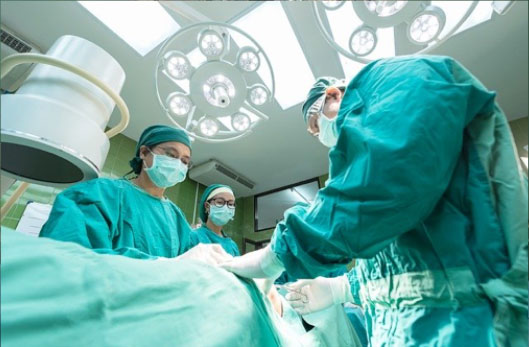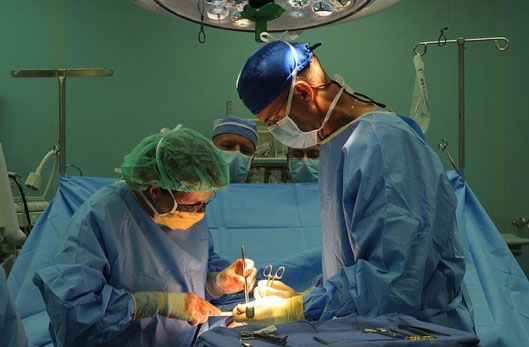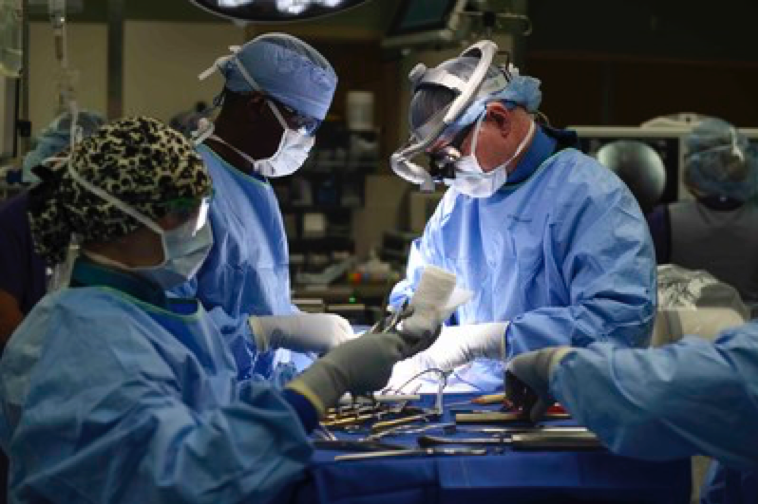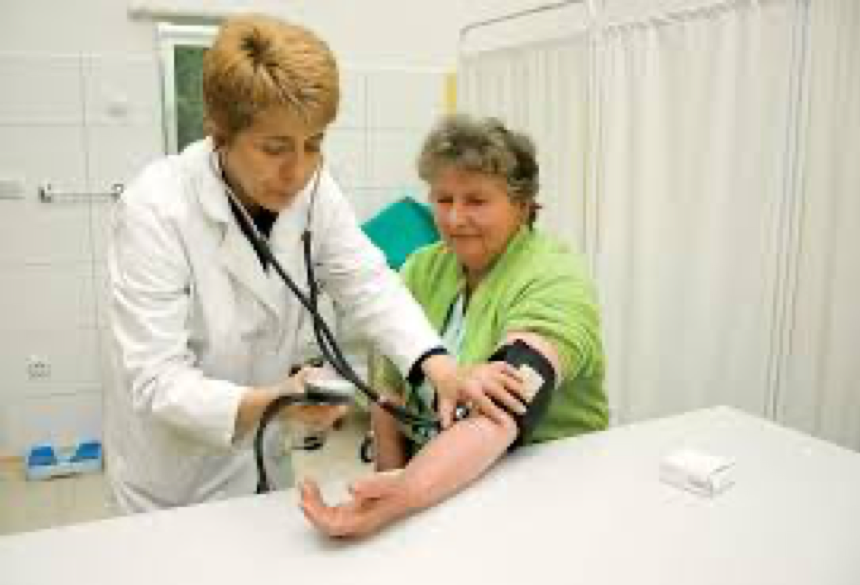CALL TODAY 646-846-1136 | EMAIL
Surgical Experts Dedicated to Improving Lives
At Lenox Hill Surgeons, our dedicated team of nyc surgeons and medical professionals provide compassionate care with the highest ethical & professional standards. In our state of the art facility, we offer surgical services using only the most cutting edge and current procedures and treatments.We specialize in general surgery, including extensive experience in performing hernia repair surgery. Our expertise is in minimally invasive surgery and robotic surgery. Minimally invasive and robotic surgery often allow patients to experience easier recovery than traditional open surgery. They also allow for more precise and less traumatic surgery. When robotic and minimally invasive surgery is not an option, we are also skilled and experienced in traditional open surgical procedures.
All of our doctors are experienced and skilled surgeons having undergone extensive training in school, residency and fellowships. They all practice medicine with ethical behavior, compassion and superb bedside manner. In the operating room they all exhibit precise mechanical abilities, analytical thinking and the ability to visualize tissue in three dimensions. These innate and learned skills allow our surgeons to be some of the most dexterous and skilled professionals in all of New York City and the Country.
Call us: 646-846-1136
About The Surgeons
PATIENT TESTIMONIALS
Recent Awards
We are honored and deeply appreciative to have consistently received prestigious awards and recognition year after year, establishing us as one of New York’s foremost hospitals for a wide range of general surgeries, safety measures, specialized procedures, and overall excellence in healthcare. At Lenox Hill Surgeons, our unwavering commitment lies in delivering exceptional care and unwavering support to our patients, guaranteeing their safety and successful recovery throughout their entire surgical experience.
Hospital Quality Awards
 America’s 50 Best Hospitals Award™ (2023, 2022)
America’s 50 Best Hospitals Award™ (2023, 2022)
Top 1% in the nation for providing the highest clinical quality year over year.

America’s 100 Best Hospitals Award™ (2021)
Top 2% in the nation for consistently delivering clinical quality year over year.

America’s 250 Best Hospitals Award™ (2023, 2022, 2021)
Top 5% in the nation for consistently delivering clinical quality.

Patient Safety Excellence Award™ (2023, 2022)
Top in the nation for providing excellence in patient safety by preventing infections, medical errors, and other preventable complications.
Specialty Clinical Quality Awards

America’s 100 Best Hospitals for Cardiac Care Award™ (2023, 2022, 2021, 2020, 2019)
Superior clinical outcomes in heart bypass surgery, coronary interventional procedures, heart attack treatment, heart failure treatment, and heart valve surgery.

America’s 100 Best Hospitals for Coronary Intervention Award™ (2023, 2022, 2021, 2020, 2019)
Superior clinical outcomes in coronary intervention procedures (angioplasty with stent).

America’s 100 Best Hospitals for Prostate Surgery Award™ (2023, 2022, 2021)
Superior clinical outcomes in prostate removal surgery and transurethral resection of the prostate.
Click to see all of our Healthgrades best doctors awards


Visit our main website at www.LenoxHillSurgeons.com
Blog Posts are Below:
Monthly Archives: November 2020
Types of Hernias & Surgery
Most hernias show little to no symptoms, but it can become a chronic health problem. A patient feels intense pain and irritation when it gets worst. It mostly needs surgery to cure the problem completely. Moreover, there is no age limitation to develop a hernia in your body.
There are multiple types of hernia that need different treatments and surgeries. Let’s learn about some of them.
Types of Hernia
There are several types of hernia. The following are some most of the common forms of hernia.
· Inguinal Hernia
This is the most common form of hernia. An inguinal hernia occurs when your intestines tear in the lower abdominal wall or push through a weak place, mostly in the inguinal canal. Moreover, it also occurs predominantly in men.
In case you don’t know, the inguinal canal is present in your groin. In men, it is the place where spermatic cord travels from the abdomen to the scrotum. This cord places the testicles at its location. Whereas, women have this place in the inguinal canal, which has a ligament that helps to hold the uterus.
Men suffer more from this hernia because the testicles move down through the inguinal canal after birth. The canal needs to be closed entirely behind them. But sometimes the canal doesn’t close properly, which makes the area a weak spot.
Hiatal Hernia
It occurs when a spot of the stomach protrudes up and gets into your chest through the diaphragm. The diaphragm is a layer of muscles that helps you to inhale and exhale. It separates the organs of the abdomen and chest.
People age 50 or older are more prone to this hernia. Children can also develop this condition caused by a congenital disability.
Moreover, this hernia always leads to gastroesophageal reflux. It happens because your stomach’s contents get back to the esophagus, which causes burning sensations.
Umbilical Hernia
This hernia can occur in babies and children. It happens when children’s intestine bulges through the abdominal wall around their belly button, and you can notice the bulge near it.
However, this is the only type of hernia that sometimes goes away on its own when the abdominal wall becomes stronger, mostly, when the child turns to 1 or 2 years. The child needs surgery if the hernia doesn’t go away until the age of 5 years.
Adults can also develop this problem because of the pressure on the abdomen. In men, it can occur due to obesity, or fluid in the gut, whereas, women with multiple pregnancies are also prone to this condition.
Ventral Hernia
This hernia occurs when the tissue erupts through a hole in the muscles of your abdomen. You can notice its presence when you lie down.
A person can also have it from birth, but it usually occurs at any point in your life. Obesity, pregnancy, and intensive exercises can become the factor of its occurrence.
This hernia also occurs at the spot of a surgical incision and called incision hernia. It can happen because of the weak abdominal muscles or surgical scarring at the place of surgery.
Types of Repair
Different types of hernia need different types of surgeries. The following are some types of hernia surgery.
Herniorrhaphy (Tissue Repair)
Herniorrhaphy is the oldest method to repair the hernia and is still commonly used. This repair requires the surgeon to make a long incision directly over the hernia and use surgical tools to open it to get to the hernia.
Your surgeon removes the hernia sac after that tissue or organs return to their original position. They stitch the sides of the muscle hole through which they draw out the hernia from your body. After sterilizing the wound, the surgeon stitches it entirely.
Hernioplasty (Mesh Repair)
It is also known as tension-free hernia repair. Hernioplasty is a little different; instead of stitching the muscle, your surgeon covers it with a sterile, flat mesh. The mesh comes in different types of plastics, such as animal tissue and polypropylene.
The surgeon makes small cuts in the shape of the mesh in the surrounding area of the hole. After that, they stitch the mesh into the healthy tissues. The weak tissue around the hernia uses the patch as support to regrow.
Bottom Line
The hernia is a painful health problem and sometimes need the treatment immediately. It is a severe issue that needs good care and the best treatment. In this case, take help from the experts that have specialization related to the hernia.
Lenox Hill Surgeons are a compassionate team of surgeons who are experts in this field for years. These professionals meet all ethical standards and have done thousands of successful surgeries. You can contact us on our website or take an appointment on 646-846-1136.
What Training Do The Top General Surgeons Receive?
General surgery involves post-residency training and specialty training. All General Surgeons are highly skilled and highly trained professionals. General surgeons are knowledgeable about the entire body and are skilled in performing accurate procedures. We can consider general surgeons the leaders of advanced disciplinary teams, health care systems, and hospitals. Their responsibility is to organize and perform complex operative care, whether in trauma, transplant, oncology, or GS.
Job Description of General Surgeon
General Surgeons carry out operations on parts of the body such as the colon, liver, gastrointestinal tract, endocrine system, and other main parts of the human body. Surgeons, for the most part, work all day and may often work extended periods of time at irregular shifts. In any event, when they are not in their work environment, surgeons must be accessible if the need arises. This means they can be approached to come into work anytime on the off days. These experts work in hospitals and other health centers.
Responsibilities and Duties of a General Surgeon
General Surgeons are responsible for the operation room, and supervising other medical experts to guarantee everything is done effectively. Like other medical experts, surgeons are liable for analyzing patients, diagnosing, and suggesting the best course of action. Some General Surgeons are additionally answerable for conducting and directing research in the field.
As a General Surgeon, a portion of the techniques you’ll perform includes bariatric surgeries, thyroidectomies, colonoscopies, and gallbladder or appendix removal. A portion of these surgeries are insignificantly invasive and are performed utilizing laparoscopic techniques. Others, for example, organ transplantation or removal, can be invasive.
Subspecialties
General Surgeons additionally have the ability to fan out into various specialties, for example, organ transplantation, pediatric surgery, or plastic surgery. One of the recent types of specialties includes performing surgeries, for example, bariatric surgeries and LAP-BAND, helping patients with obesity. Plastic surgeons can perform procedures that run from augmenting breasts to repairing injuries and wounds of the skin. Many General Surgeons additionally work with cardiovascular specialists on procedures including the heart; for example, heart transplant surgery and valve fix.

(Source)
Education and Training Required for General Surgeons
If you want to become a General Surgeon, you must:
- Complete your graduate and undergraduate education (a medical degree and a baccalaureate degree)
- After that, complete a five years residency program in general surgery. This consist of specialized knowledge about the vascular (circulatory) system, surgical oncology (follow-up with cancer patients, rehabilitation, surgical therapy, surveillance, management of screening), head and neck, endocrine system, critical care, comprehensive trauma management, soft tissue, skin, breast, alimentary tract (digestive organs), and abdomen.
- There are different requirements of the residency program for each specialty area, such as thoracic surgery is about five years of general surgery and also contains two years of practice in thoracic and cardiovascular surgery.
Licensure
Graduating from a medical school doesn’t consequently make you a licensed surgeon. You’ll have to earn licensure by passing the Comprehensive Osteopathic Medical Licensing Exam or the United States Medical Licensing Examination, depending upon whether you graduated with a Doctor of Osteopathic Medicine or Doctor of Medicine. These three-section exams evaluate your capacity to apply scientific or medical knowledge towards taking care of the patients and advancing health in a clinical limit. Additionally, if there are any other specific requirements you have to satisfy in your state, you’ll have to confirm with the state clinical licensing board.
Residency
After graduating from medical school, you’ll have to enroll for a five-year general surgery residency program. As an occupant, you’ll have chances to help with a variety of surgeries, just as to give pre-and post-operative consideration on patients. You can finish various clinical rotations in areas, for example, anesthesia, critical care, pediatric surgery, thoracic surgery, and cardiac surgery. You may, likewise, be required or urged to take part in the research.

(Source)
A few things to consider
None of this ought to prevent you from pursuing your dreams to be a surgeon. However, it’s critical to know about the professional risks and what you can do to control them. Meditation, a healthy diet, regular exercise, and other things, for example, therapy, counseling, or even simply talking with your loved ones, will help reduce feelings of anxiety. So remember, despite the fact that a surgeon saves the lives of different people, taking care of yourself will be just as significant.
Conclusion
Your journey to turn into a surgeon will be challenging, long, but one of the most rewarding things you’ll ever do. You’ll utilize your hard-earned expertise to assist patients with living better lives while improving the surgical profession for ages of patients to come.
If you are looking for professional general surgeons for your condition, kindly contact us at 646-846-1136. You can also visit our website to book an appointment online at https://lenoxhillsurgeons.com/.




















